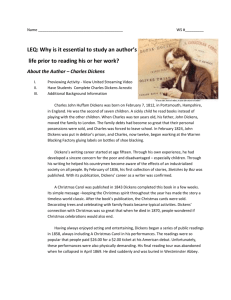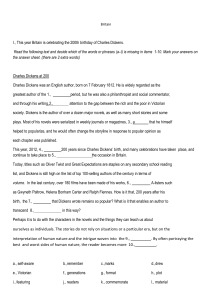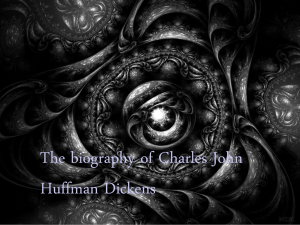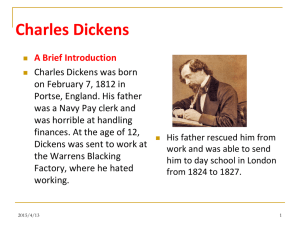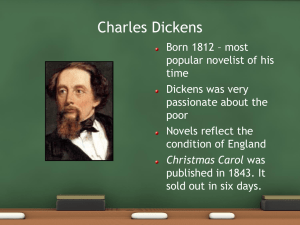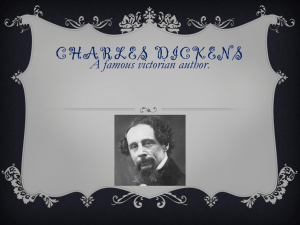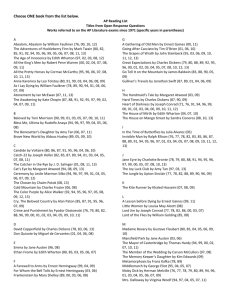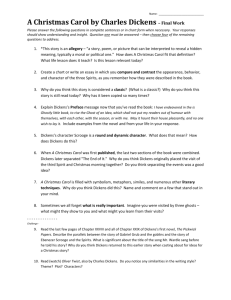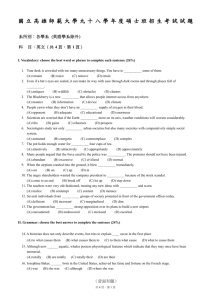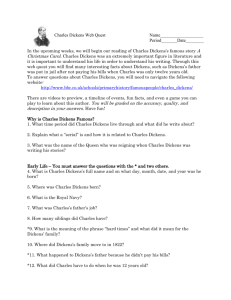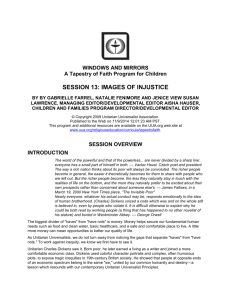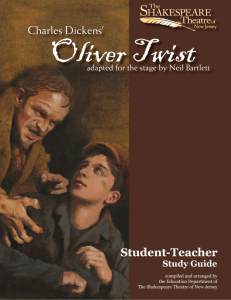Charles Dickens Biography
advertisement
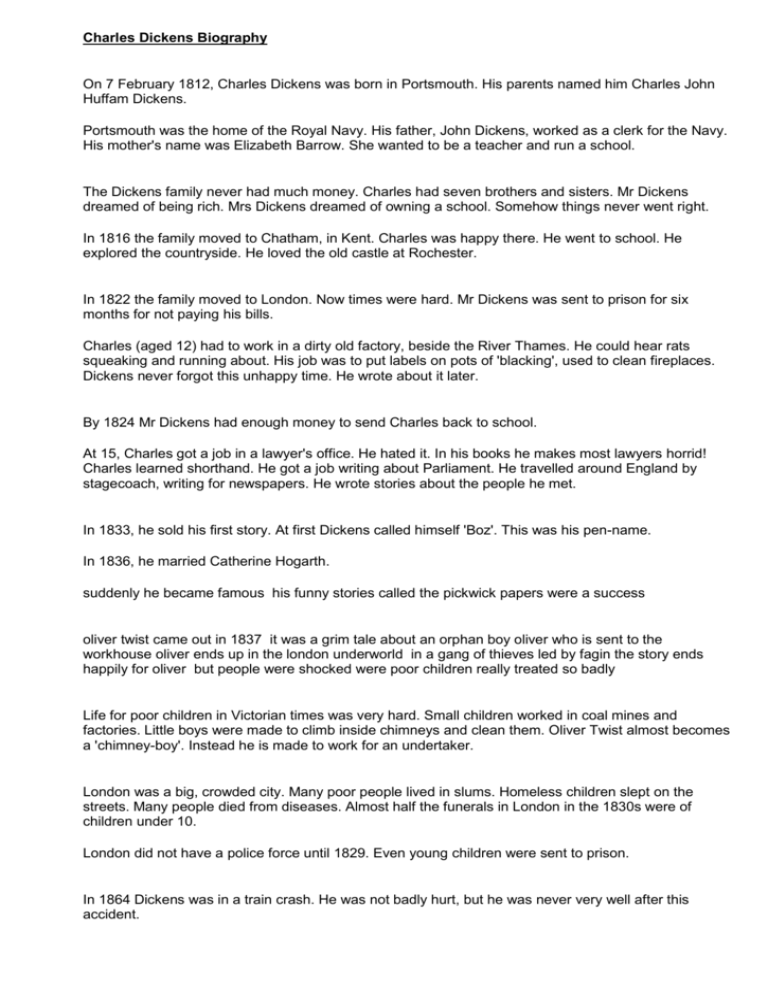
Charles Dickens Biography On 7 February 1812, Charles Dickens was born in Portsmouth. His parents named him Charles John Huffam Dickens. Portsmouth was the home of the Royal Navy. His father, John Dickens, worked as a clerk for the Navy. His mother's name was Elizabeth Barrow. She wanted to be a teacher and run a school. The Dickens family never had much money. Charles had seven brothers and sisters. Mr Dickens dreamed of being rich. Mrs Dickens dreamed of owning a school. Somehow things never went right. In 1816 the family moved to Chatham, in Kent. Charles was happy there. He went to school. He explored the countryside. He loved the old castle at Rochester. In 1822 the family moved to London. Now times were hard. Mr Dickens was sent to prison for six months for not paying his bills. Charles (aged 12) had to work in a dirty old factory, beside the River Thames. He could hear rats squeaking and running about. His job was to put labels on pots of 'blacking', used to clean fireplaces. Dickens never forgot this unhappy time. He wrote about it later. By 1824 Mr Dickens had enough money to send Charles back to school. At 15, Charles got a job in a lawyer's office. He hated it. In his books he makes most lawyers horrid! Charles learned shorthand. He got a job writing about Parliament. He travelled around England by stagecoach, writing for newspapers. He wrote stories about the people he met. In 1833, he sold his first story. At first Dickens called himself 'Boz'. This was his pen-name. In 1836, he married Catherine Hogarth. suddenly he became famous his funny stories called the pickwick papers were a success oliver twist came out in 1837 it was a grim tale about an orphan boy oliver who is sent to the workhouse oliver ends up in the london underworld in a gang of thieves led by fagin the story ends happily for oliver but people were shocked were poor children really treated so badly Life for poor children in Victorian times was very hard. Small children worked in coal mines and factories. Little boys were made to climb inside chimneys and clean them. Oliver Twist almost becomes a 'chimney-boy'. Instead he is made to work for an undertaker. London was a big, crowded city. Many poor people lived in slums. Homeless children slept on the streets. Many people died from diseases. Almost half the funerals in London in the 1830s were of children under 10. London did not have a police force until 1829. Even young children were sent to prison. In 1864 Dickens was in a train crash. He was not badly hurt, but he was never very well after this accident. In 1868 he went on a tour of the United States. He read to large audiences, on stage. It was very tiring. He came home worn out and sick. Dickens died in June 1870, at home in Kent. He was working on a new book. It was The Mystery of Edwin Drood. Charles Dickens was buried in Westminster Abbey. Activity 1 – Copy out paragraphs 1,2 and 3 neatly into your English book. Activity 2 – Look at paragraphs 11 and 12. The punctuation has been removed. Write out the paragraphs with the correct punctuation (capital letters, full stops, commas and question marks). Activity 3 – This biography is written for Primary School aged children. It uses mainly simple sentences and basic vocabulary and punctuation. Rewrite paragraphs 13, 14 and 15 for and adult audience. Use complex and compound sentences, appropriate vocabulary and higher level punctuation.
